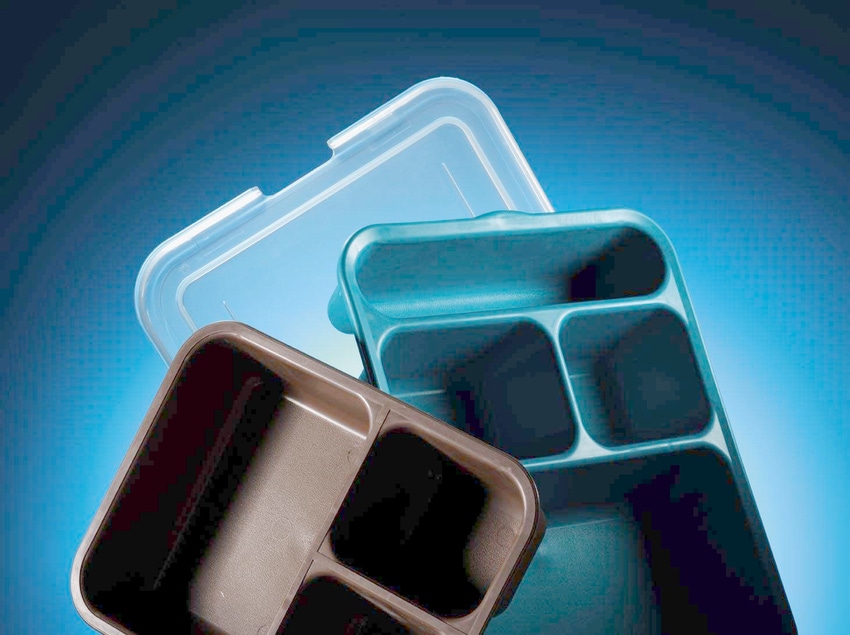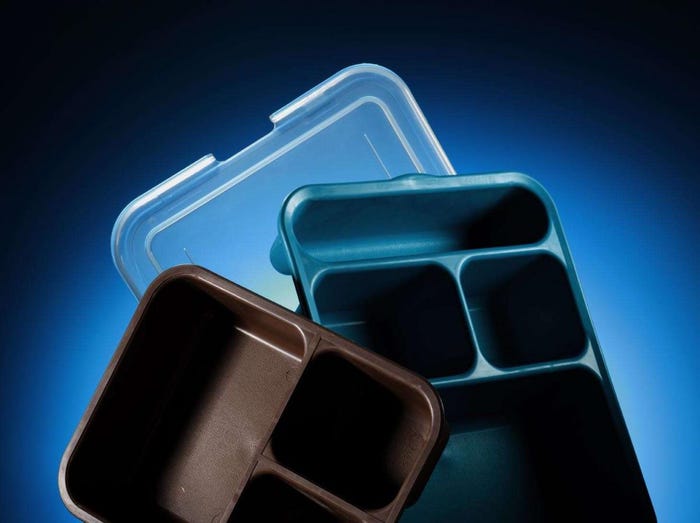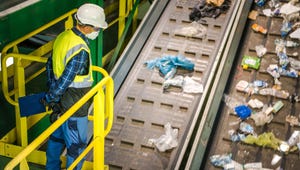You would be hard pressed to find a low-tech plastics application with more standards applied to it than the food trays used in correctional facilities. Food contact safety? Naturally. But tack on "ease of graffiti removal" and "inability to serve as a weapon" and your simple serving tray becomes a high-end project.
September 22, 2011

You would be hard pressed to find a low-tech plastics application with more standards applied to it than the food trays used in correctional facilities. Food contact safety? Naturally. But tack on "ease of graffiti removal" and "inability to serve as a weapon" and your simple serving tray becomes a high-end project.
|
Those were among the issues facing The JonesZylon Company, a marketer and manufacturer of plastic service trays, serving dishes and flatware, and its injection molding partner Controlled Molding Inc. (Hadley, PA). The two worked with supplier PolyOne GLS Thermoplastic Elastomers (McHenry, IL) to develop custom grade of thermoplastic elastomer (TPE) suitable for the prison cafeteria. It's a niche market, of course, but with fully 1% of the entire U.S. population behind bars, it's not a tiny one.
PolyOne, The JonesZylon Company and Controlled Molding Inc. needed a cost-effective alternative to silicone that would provide flexibility, making it a safer alternative to existing rigid plastic service items, which can be fashioned into weapons, but with enough rigidity to not let food flop onto the floor. They also needed a grade that would meet the U.S. Food and Drug Administration (FDA) requirements for fatty food contact and could be custom colored.
Todd Kohl, president of JonesZylon (West Lafayette, OH), said, "Our company is noted for innovation and we wanted to be first to market with a great solution to the safety challenges of conventional food service materials." He thanked the plastics supplier for helping his firm "overcome all hurdles, enabling us to offer the correctional market a safer product at a competitive price." JonesZylon and Controlled Molding Inc. were able to mold the specialty TPE on existing molds from a previous line of copolymer products.
JonesZylon used the custom PolyOne material to create its own material, called MAX-FLEX, which is used for three-compartment serving trays with clear lids and other serving items. Temperature resistance is rated from -40º to 300ºF. Serving items are offered in two colors - chocolate and teal - and with transparent lids to prevent inmates from hiding contraband. Sales are strong, according to the brand owner.
About the Author(s)
You May Also Like



